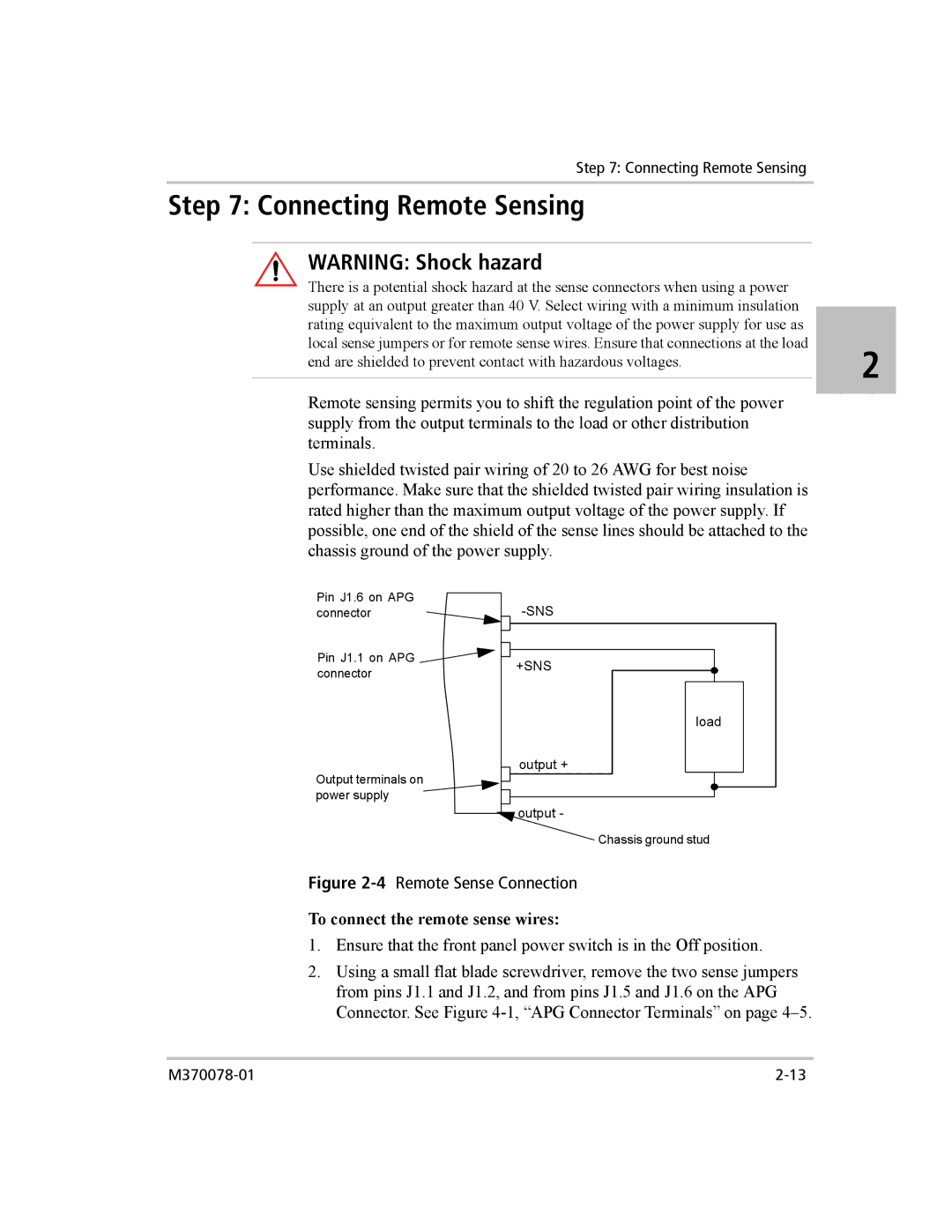
| Step 7: Connecting Remote Sensing |
|
Step 7: Connecting Remote Sensing |
| |
|
|
|
| WARNING: Shock hazard |
|
| There is a potential shock hazard at the sense connectors when using a power |
|
| supply at an output greater than 40 V. Select wiring with a minimum insulation |
|
| rating equivalent to the maximum output voltage of the power supply for use as |
|
| local sense jumpers or for remote sense wires. Ensure that connections at the load | 2 |
| end are shielded to prevent contact with hazardous voltages. | |
|
| |
|
|
|
Remote sensing permits you to shift the regulation point of the power supply from the output terminals to the load or other distribution terminals.
Use shielded twisted pair wiring of 20 to 26 AWG for best noise performance. Make sure that the shielded twisted pair wiring insulation is rated higher than the maximum output voltage of the power supply. If possible, one end of the shield of the sense lines should be attached to the chassis ground of the power supply.
Pin J1.6 on APG connector
Pin J1.1 on APG ![]()
![]()
![]() connector
connector
Output terminals on power supply
+SNS
output +
load
![]() output -
output -
Chassis ground stud
Figure 2-4 Remote Sense Connection
To connect the remote sense wires:
1.Ensure that the front panel power switch is in the Off position.
2.Using a small flat blade screwdriver, remove the two sense jumpers from pins J1.1 and J1.2, and from pins J1.5 and J1.6 on the APG Connector. See Figure
